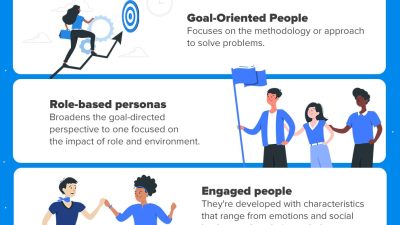Leveraging AI Powered Tools to Boost Digital Service Sales Performance sets the stage for this enthralling narrative, offering a glimpse into a realm where technology meets innovation to redefine the sales landscape. In today’s fast-paced digital environment, businesses must embrace AI-powered tools to enhance their service offerings and drive sales. From predictive analytics to automated customer interactions, these cutting-edge technologies are revolutionizing how companies engage with their customers and optimize their sales strategies.
As we delve deeper, we will explore the significance of AI in enhancing digital services, the evolution of technological advancements, and how these tools are becoming indispensable for improving sales performance in various industries.
Introduction to AI-Powered Tools
Artificial Intelligence (AI) has emerged as a transformative force in the digital landscape, significantly enhancing the efficiency and effectiveness of sales processes across various industries. By harnessing the power of AI, businesses can streamline their operations, gain insights into customer behavior, and ultimately drive higher sales performance. The integration of AI into digital services not only improves the customer experience but also empowers sales teams to make data-driven decisions that lead to successful outcomes.AI-powered tools have become indispensable in the modern sales environment.
These tools leverage machine learning algorithms, natural language processing, and predictive analytics to provide insights that were previously unimaginable. Common tools such as CRM systems with AI capabilities, chatbots for customer engagement, and analytics platforms for trend forecasting exemplify how AI can enhance sales strategies. As technology evolves, the convergence of AI with sales practices continues to redefine how organizations engage with customers and optimize their sales funnels.
Impact of Technology Evolution on Sales Performance
The rapid evolution of technology has reshaped the landscape of sales, leading to significant improvements in performance metrics. The integration of AI tools into sales processes allows for a more personalized approach to customer interactions, resulting in increased conversion rates and customer satisfaction. Key aspects of this evolution include:
- Predictive Analytics: AI enables sales teams to analyze vast amounts of data, predicting customer trends and behavior with high accuracy. This leads to more effective targeting and segmentation strategies.
- Automation of Routine Tasks: AI-powered tools automate repetitive tasks such as data entry and lead management, allowing sales professionals to focus on high-value activities that drive revenue.
- Enhanced Customer Engagement: Tools like AI chatbots provide instant responses to customer inquiries, improving engagement and ensuring that potential leads are nurtured effectively.
- Real-Time Insights: With real-time data analysis, sales teams can quickly adapt their strategies based on current market conditions, leading to more informed decision-making.
The significance of these advancements cannot be understated, as they not only drive efficiency but also cultivate stronger relationships between businesses and their customers.
“AI is not just a tool; it’s a game changer that redefines how sales teams operate and engage with their customers.”
The evolution of AI-powered tools in sales is not merely a trend but a critical advancement that will shape the future of digital service sales. By leveraging these technologies, organizations can position themselves as leaders in their respective markets, ready to meet the challenges of an increasingly competitive business environment.
Understanding Digital Service Sales Performance
Digital service sales performance encompasses the effectiveness and efficiency with which businesses sell their digital services. Key indicators of this performance provide insights into how well a company is achieving its sales objectives and are essential for strategic decision-making. By analyzing these metrics, businesses can refine their approaches, enhance customer engagement, and ultimately increase revenue.Digital service sales performance can be measured using various key indicators, which represent the health of a company’s sales efforts.
Understanding these metrics is critical for identifying strengths, weaknesses, and areas for improvement. The following key indicators form the backbone of assessing digital service sales performance:
- Conversion Rate: This measures the percentage of leads that convert into paying customers, indicating the effectiveness of sales strategies.
- Customer Acquisition Cost (CAC): This represents the total cost of acquiring a new customer, providing insight into the efficiency of marketing and sales efforts.
- Customer Lifetime Value (CLV): This estimates the total revenue a business can expect from a customer over the duration of their relationship, helping to gauge long-term profitability.
- Sales Growth Rate: This indicates the rate at which sales revenue is increasing or decreasing over a specific period, reflecting overall business health.
- Churn Rate: This measures the percentage of customers that stop using a service during a given timeframe, revealing customer satisfaction and retention dynamics.
Businesses face several challenges when aiming to improve their digital service sales performance. These challenges can hinder growth and create obstacles in achieving strategic objectives. Recognizing and addressing these issues is crucial for success in a competitive landscape. Common challenges include:
- Competition: The digital marketplace is saturated with numerous players, making it difficult for businesses to differentiate their services.
- Market Trends: Rapid changes in technology and customer preferences can create uncertainty and complicate sales strategies.
- Data Overload: The vast amount of data generated can overwhelm teams, making it hard to extract actionable insights.
- Integration Issues: Difficulty in integrating various technology platforms can lead to inefficiencies and communication gaps within the sales process.
Data analytics plays a pivotal role in monitoring sales metrics and driving performance improvement. By leveraging data analytics, businesses can gain valuable insights into customer behaviors, preferences, and trends. These insights not only enhance decision-making but also inform targeted marketing strategies. The importance of data analytics in digital service sales performance can be summarized by the following points:
- Real-Time Monitoring: Businesses can track sales metrics in real time, allowing for quick adjustments to strategies as needed.
- Predictive Analysis: By analyzing past data, businesses can forecast future trends and customer behaviors, enabling proactive decision-making.
- Performance Benchmarking: Companies can compare their sales performance against industry standards or competitors, identifying areas for improvement.
- Enhanced Customer Insights: Data analytics helps in understanding customer needs and preferences, leading to more personalized service offerings.
Utilizing data analytics effectively empowers businesses to optimize their sales processes, leading to increased efficiency and better overall performance in digital service sales.
Types of AI-Powered Tools for Sales
AI-powered tools are revolutionizing the sales landscape, enabling businesses to streamline processes, enhance customer interactions, and ultimately drive revenue growth. By harnessing the power of artificial intelligence, sales teams can gain valuable insights into customer behavior, optimize lead generation, and improve overall performance. This section will explore various AI tools specifically designed for sales, providing insights into their features, applications, and integration capabilities.
Overview of AI Tools for Sales
The integration of AI tools into sales strategies has become essential for staying competitive in today’s market. These tools range from chatbots and predictive analytics to customer relationship management (CRM) systems that utilize machine learning. Each tool offers unique capabilities that can enhance the efficiency and effectiveness of sales operations.
Popular AI Tools for Sales
Understanding the diverse array of AI tools available is vital for selecting the right solutions for your sales team. Below are several noteworthy options, each designed to tackle specific aspects of the sales process.
- Chatbots: AI-powered chatbots assist in customer service and lead generation by providing instant responses, qualifying leads, and guiding prospects through the sales funnel.
- Predictive Analytics Tools: These tools analyze historical data to forecast future trends and customer behavior, helping sales teams prioritize leads and tailor their approaches.
- CRM Systems: Modern CRM platforms with integrated AI features provide insights into customer interactions, automate tasks, and facilitate personalized communication strategies.
- Email Automation Tools: By utilizing AI, these tools personalize email content, optimize send times, and segment audiences for targeted campaigns, significantly improving open and response rates.
- Sales Intelligence Platforms: These tools gather and analyze data about prospects, enabling sales teams to identify the best opportunities and refine their outreach strategies.
Comparative Table of AI Tools
In order to make informed decisions regarding which AI tools to implement, a comparative analysis of popular options is essential. Below is a table highlighting the key features of notable AI-powered sales tools:
| Tool Name | Main Features | Best For |
|---|---|---|
| Drift | Chatbot, lead qualification, real-time messaging | Lead generation and customer engagement |
| Salesforce Einstein | Predictive analytics, CRM integration, automation | Comprehensive sales management |
| HubSpot Sales | Email tracking, sales automation, reporting | Email and CRM integration |
| InsideSales.com | Sales forecasts, lead prioritization, analytics | Data-driven sales strategies |
| Conversica | Automated follow-ups, lead nurturing, engagement tracking | Lead conversion and personalized communication |
Integrating AI Tools with Existing Sales Processes
The successful implementation of AI tools requires careful planning and alignment with existing sales processes. Integrating these tools should enhance current workflows rather than disrupt them. Consider the following strategies for effective integration:
- Assess Current Processes: Evaluate existing sales workflows to identify areas where AI can provide the most value, such as automating repetitive tasks or improving lead scoring.
- Training and Support: Providing comprehensive training for sales staff ensures they understand how to leverage new AI tools effectively, optimizing their impact on performance.
- Gradual Implementation: Start by integrating one or two AI tools into your processes, allowing time for adjustments before scaling up.
- Monitor and Adjust: Continuously analyze the performance of AI tools and their impact on sales outcomes, making necessary adjustments to align with evolving business needs.
“AI tools are not just a luxury; they are becoming a necessity for sales teams aiming to thrive in a competitive marketplace.”
Implementing AI Tools in Sales Strategy

Integrating AI into your sales strategy can transform how your team interacts with customers and optimizes sales processes. By harnessing powerful AI-driven tools, businesses can enhance their sales performance, streamline activities, and improve decision-making. A well-structured plan for implementation is essential to maximize the benefits of these technologies.To effectively incorporate AI tools into your sales strategy, a step-by-step plan is vital.
This structured approach ensures that your team can adapt to new technologies without disrupting existing workflows. The following steps guide businesses in the seamless integration of AI tools:
Step-by-Step Plan for Incorporating AI into Sales Strategy
1. Assessment of Current Sales Processes
Evaluate existing sales processes to identify areas where AI tools can add value. Focus on data management, lead generation, and customer interactions to determine how AI can enhance efficiency.
2. Define Clear Objectives
Establish specific goals for AI integration, such as increasing lead conversion rates or reducing response times. Clear objectives will guide your implementation efforts and help measure success.
3. Select Appropriate AI Tools
Research and select AI tools that align with your sales objectives. Consider factors such as ease of integration, user-friendliness, and proven effectiveness in similar business contexts.
4. Pilot Testing
Before full-scale implementation, conduct a pilot test with a small group of users. This allows you to gather feedback and make adjustments before rolling out the tools across the entire sales team.
5. Full Implementation
Once the pilot test demonstrates success, implement the AI tools across the sales team. Ensure that the transition is smooth to minimize disruptions.
6. Continuous Monitoring and Optimization
Regularly evaluate the performance of AI tools and adjust strategies as necessary. Continuous monitoring allows you to optimize usage and achieve the best outcomes.Training is a critical element in successfully leveraging AI tools. To maximize adoption and effectiveness, sales teams require comprehensive training. Implementing best practices for training can significantly enhance the use of AI tools:
Best Practices for Training Sales Teams on AI Tools
Effective training programs should incorporate the following elements:
Hands-On Experience
Provide practical training sessions where sales representatives can work directly with AI tools. This experiential learning fosters confidence and familiarity with the technology.
Customized Training Modules
Tailor training content to the specific AI tools being implemented and the unique needs of the sales team. This personalization increases relevance and engagement during training sessions.
Ongoing Support and Resources
Create a resource library that includes guides, tutorials, and FAQs. Establish a support system where team members can seek assistance as needed to reinforce learning.
Feedback Mechanism
Encourage feedback from sales representatives about the training process. This input can help refine future training sessions and improve overall effectiveness.Evaluating the impact of AI tools on sales performance is crucial for understanding their effectiveness and making informed decisions moving forward. Implementing methods for evaluation fosters accountability and encourages continuous improvement:
Methods for Evaluating the Effectiveness of AI Tools in Sales
To measure the success of AI tool integration, consider adopting the following evaluation methods:
Key Performance Indicators (KPIs)
Establish KPIs related to sales performance, such as conversion rates, customer engagement levels, and average deal size. Regularly track these metrics to gauge the impact of AI tools.
User Adoption Rates
Monitor how frequently and effectively team members utilize the AI tools. High adoption rates typically correlate with improved sales outcomes, indicating successful integration.
Sales Cycle Analysis
Analyze changes in sales cycle length before and after AI tool implementation. A reduction in sales cycle time can signify improved efficiency and effectiveness due to AI intervention.
Qualitative Feedback
Collect testimonials and feedback from sales representatives about their experiences using AI tools. This qualitative data can provide insights into user satisfaction and identify areas for improvement.By following a structured implementation plan, investing in thorough training, and using robust evaluation methods, businesses can unlock the full potential of AI-powered tools to boost digital service sales performance.
Case Studies of Successful AI Implementation
The integration of AI tools into sales processes is transforming how companies operate and achieve remarkable results. By analyzing successful case studies, businesses can gain insights into effective strategies and tangible outcomes that AI implementation can deliver. Here, we highlight notable examples of companies that embraced AI to enhance their sales performance, along with the significant results they achieved.
Salesforce and Einstein AI, Leveraging AI Powered Tools to Boost Digital Service Sales Performance
Salesforce, a leader in customer relationship management (CRM), integrated its AI platform, Einstein, to enhance sales processes. By utilizing Einstein, Salesforce provided predictive analytics and personalized insights directly to their sales teams. This powerful tool enabled sales representatives to prioritize leads based on their likelihood to convert, leading to a more efficient sales funnel. The outcomes were remarkable:
- Sales teams experienced a 30% increase in lead conversion rates.
- Time spent on administrative tasks decreased by 20%, allowing more focus on selling.
- Customer satisfaction improved, with a 25% reduction in response times to inquiries.
This case exemplifies how predictive AI can streamline sales operations and significantly boost performance.
HubSpot’s Predictive Lead Scoring
HubSpot, a well-known marketing and sales software platform, implemented predictive lead scoring powered by AI to refine its sales strategies. The AI tool analyzed historical data to identify patterns and assign scores to leads based on their probability of closing. Key results from this implementation included:
- A 40% increase in qualified leads reaching the sales team, enhancing overall sales effectiveness.
- Sales cycle time was reduced by 15%, leading to faster deal closures.
- Improved sales forecasting accuracy, helping the company strategize better.
The success of HubSpot’s approach highlights the importance of data analysis in making informed sales decisions.
IBM and Watson Sales Performance
IBM harnessed the capabilities of its AI, Watson, to empower their sales teams with insights derived from vast amounts of data. Watson analyzed customer interactions and provided tailored recommendations for follow-up actions, which transformed the way IBM engaged with its prospects.The results included:
- A 25% increase in upsell opportunities due to more personalized interactions.
- Enhanced cross-selling strategies, resulting in a 30% growth in revenue from existing customers.
- More efficient training for new sales staff, as AI generated real-time feedback and coaching.
IBM’s successful AI implementation illustrates how leveraging advanced analytics can enhance customer engagement and drive revenue growth.
Key Takeaways from Case Studies
From these successful implementations, businesses can extract several key insights that can be applied to their own sales strategies:
- Investing in AI tools can lead to significant improvements in lead conversion and overall sales efficiency.
- Predictive analytics can provide valuable insights that empower sales teams to make informed decisions.
- Personalization is crucial; AI can enhance customer interactions and improve satisfaction.
- Streamlining administrative tasks through automation allows sales representatives to focus on building relationships and closing deals.
These examples reveal the transformative potential of AI in sales, underscoring the importance of adapting to technological advancements for sustained success.
Future Trends in AI and Sales
The landscape of sales is evolving rapidly, and artificial intelligence (AI) is at the forefront of this transformation. As businesses strive to enhance their digital services, understanding the future trends of AI in sales becomes vital. This exploration delves into emerging AI technologies and their potential impact on sales strategies, ensuring that businesses remain competitive and innovative.
Emerging Trends in AI for Sales
Artificial intelligence is constantly advancing, and several key trends are expected to shape its future role in sales. These developments will not only change how businesses interact with customers but will also redefine sales processes entirely. The following trends are notable:
- Predictive Analytics: AI tools will increasingly leverage predictive analytics to forecast customer behaviors and preferences, allowing sales teams to tailor their strategies more effectively.
- Personalization through Machine Learning: Enhanced machine learning algorithms will enable hyper-personalized experiences, helping businesses to engage customers with targeted marketing and sales efforts.
- AI-Driven Chatbots and Virtual Assistants: The integration of sophisticated AI chatbots will facilitate real-time customer interaction, providing immediate assistance and guiding buyers through the sales funnel efficiently.
- Sales Automation: AI tools will automate routine sales tasks, freeing up human representatives to focus on building relationships and closing deals, thus increasing overall productivity.
- Enhanced Customer Insights: Continuous improvement in data collection and analysis will provide deeper insights into customer needs, leading to smarter decision-making in sales strategies.
Predictions for AI Tool Evolution
As AI technology progresses, predictions regarding its evolution highlight significant changes in digital services. These predictions emphasize how sales teams can utilize these tools to enhance performance and customer satisfaction:
- Integration of Augmented Reality (AR): Future AI tools may incorporate AR, allowing customers to visualize products in their environment, thereby enhancing the buying experience.
- Advanced Emotion Recognition: AI systems will likely evolve to interpret customer emotions through voice and facial recognition, enabling more empathetic sales approaches.
- Real-Time Data Utilization: AI will enable real-time analysis of customer interactions, allowing sales teams to adjust their strategies instantaneously based on live feedback.
- Collaborative AI Systems: Future AI applications will facilitate collaboration between sales teams by sharing insights and strategies, fostering a more cohesive approach to selling.
Ethical Considerations in AI for Sales
As AI tools become integral to sales strategies, ethical considerations are paramount. Businesses must navigate these concerns to maintain customer trust and ensure compliance with regulations. Key ethical aspects include:
- Data Privacy: With the increasing use of AI for data collection, companies must prioritize transparency and ensure customer data is handled responsibly, complying with regulations such as GDPR.
- Bias in AI Algorithms: Ensuring fairness in AI algorithms is crucial to prevent discrimination based on race, gender, or socioeconomic status, which could adversely affect sales efforts.
- Accountability for AI Decisions: Establishing accountability for decisions made by AI systems in sales will be essential to maintain ethical standards and customer trust.
- Consumer Awareness: It is important to educate consumers about how AI tools are used in sales processes, fostering a relationship built on transparency and trust.
Conclusion and Next Steps: Leveraging AI Powered Tools To Boost Digital Service Sales Performance
In today’s competitive landscape, the significance of leveraging AI-powered tools to enhance sales performance cannot be overstated. These innovative technologies are revolutionizing the way businesses connect with customers and streamline their sales processes. As we wrap up our exploration of this transformative topic, it is essential to recognize the pivotal role that AI plays in driving measurable results and improving efficiency in digital service sales.To maximize the benefits of AI adoption in sales strategies, businesses should consider a structured approach.
Below is a checklist that Artikels critical steps for organizations looking to integrate AI-powered solutions effectively.
Checklist for Adopting AI-Powered Solutions
The following checklist serves as a guide to help businesses embark on their AI journey, ensuring a smooth transition and optimized outcomes:
- Assess current sales processes to identify areas for improvement.
- Research and choose AI tools that align with business objectives.
- Invest in training and upskilling teams to utilize AI technologies effectively.
- Develop a clear implementation strategy with measurable goals.
- Monitor performance metrics to gauge the impact of AI tools on sales results.
- Encourage feedback from sales teams to refine AI usage continuously.
- Stay updated on emerging AI trends and technologies to remain competitive.
“The future of sales is not just about technology; it’s about how effectively you leverage technology to create better customer experiences.”
Emphasizing the importance of continuous learning and adaptation, businesses must remain vigilant and proactive in exploring new AI technologies and methodologies. As the digital landscape evolves, embracing change and fostering a culture of innovation will be crucial for long-term success in sales performance. By following these steps, organizations can position themselves at the forefront of the AI revolution, ultimately leading to sustainable growth and enhanced customer satisfaction.









